Some I love, some I hate. But, they all changed my perception. Not every book ends as it should, or how you expect it should. SPOILERS
1
Margo shows how teenagers can romanticise a place, person, or thing to the point that it becomes almost a worshipping action. She is seen as an incredible force, misunderstood and 'crazy'. She is a mystery. Quentin follows her to this mysterious 'paper town' of Algoe, New York. In the end, Margo's mystery is an empty, non-concern. She was never what people said she was. Much like Algoe, an empty, non-existent place that was never the town that the maps said it was. Quentin realises the power that they gave the stories, and how the truth is never what it seems.
2
Miles is 'seeking the Great Perhaps'. Alaska is trying to figure out 'the labyrinth of suffering'. This book works well as it makes people realise that, for a teen, every choice and action is the most important, life-altering decision that you can make. Alaska disappears and, with her, goes the answer to all of Miles' questions. Then, Alaska dies. Her endeavor for 'the labyrinth' is cut off by suffering, possibly answering her own questions. She wrote that 'straight and fast' was the only way out, possibly why she drove into a police car. But, Miles decides that the only way out for him was to go straight through it. Through the pain, through the pain, through 'the labyrinth of suffering', into the unknown, into the 'Great Perhaps'. Choices can be perhaps, or they can be final. It is up to you.
3
Eight strangers on an island. Add to that, an eccentric couple, a butler and a housekeeper, and a suspicious host. No one knows why they are there specifically, only that they all get accused of murder at the door. One by one, the bodies fall. No one is safe, but everyone seems to have an alibi. One shining light, a judge, decides to investigate, and everyone blindly trusts him, seeing no alternative. Soon, all but one are gone. The murderer. Then, they are gone too. This book explores how authority and the power and status that come along with it can cloud judgement and lead to an unwilling, glum downfall. A true whodunnit. You question yourself and your assumptions all the way through - after all, who wouldn't trust a judge?
4
A girl who, troubled by her past, learns to live from a boy, troubled by his future. Finch wants to kill himself, but each time something small stops him. A trivial excuse from the definite end. Violet wants to grow old, counting the days until her graduation, until her future begins. One is looking forward, while the other has only ever looked back. They meet and have a handful of amazing days. They can be themselves with each other, only ever living in the moment, not the future or past. Finch stops obsessing with death. Violet stops counting forward. That is until something clicks. Violet's world grows, Finch's world shrinks. Then, something you never expect happens. In the search for his darkness, Finch accidentally points out all the bright places. Violet sees the bright places, and will forever treasure her time with Finch, all be it fleeting. This book ends with a bang and a stutter. It is not what is expected from a seemingly happy story.
5
Indigo, a seemingly intelligent and kind girl, turns out to be more naive than you think. Rick, Suzie's boyfriend, is no better. His boyish, relaxed, kind charm wears off quickly. Suzie, a passive-aggressive victim, who never acts as she should. This book was full of wrong turns and bad decisions, but it ends in a way that is never expected. The subject matter was harsh, but the ending seems to forget about it. When it is over, it is not necessarily ending in a good way. It gives you a lot to ponder but not happily.
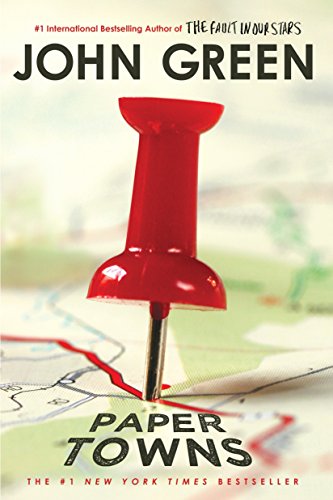
1
Margo shows how teenagers can romanticise a place, person, or thing to the point that it becomes almost a worshipping action. She is seen as an incredible force, misunderstood and 'crazy'. She is a mystery. Quentin follows her to this mysterious 'paper town' of Algoe, New York. In the end, Margo's mystery is an empty, non-concern. She was never what people said she was. Much like Algoe, an empty, non-existent place that was never the town that the maps said it was. Quentin realises the power that they gave the stories, and how the truth is never what it seems.
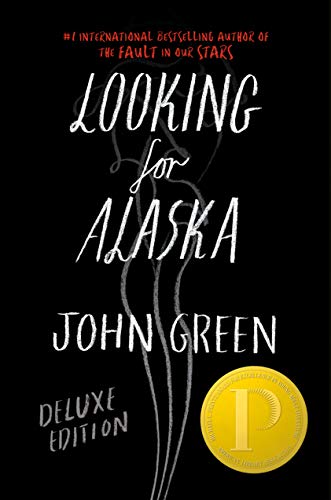
2
Miles is 'seeking the Great Perhaps'. Alaska is trying to figure out 'the labyrinth of suffering'. This book works well as it makes people realise that, for a teen, every choice and action is the most important, life-altering decision that you can make. Alaska disappears and, with her, goes the answer to all of Miles' questions. Then, Alaska dies. Her endeavor for 'the labyrinth' is cut off by suffering, possibly answering her own questions. She wrote that 'straight and fast' was the only way out, possibly why she drove into a police car. But, Miles decides that the only way out for him was to go straight through it. Through the pain, through the pain, through 'the labyrinth of suffering', into the unknown, into the 'Great Perhaps'. Choices can be perhaps, or they can be final. It is up to you.
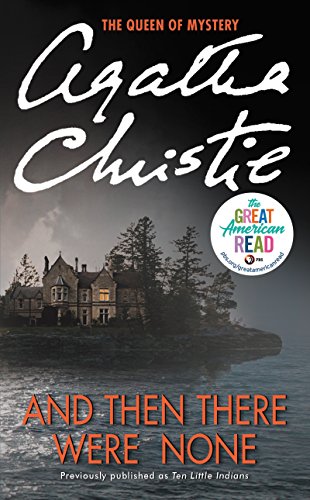
3
Eight strangers on an island. Add to that, an eccentric couple, a butler and a housekeeper, and a suspicious host. No one knows why they are there specifically, only that they all get accused of murder at the door. One by one, the bodies fall. No one is safe, but everyone seems to have an alibi. One shining light, a judge, decides to investigate, and everyone blindly trusts him, seeing no alternative. Soon, all but one are gone. The murderer. Then, they are gone too. This book explores how authority and the power and status that come along with it can cloud judgement and lead to an unwilling, glum downfall. A true whodunnit. You question yourself and your assumptions all the way through - after all, who wouldn't trust a judge?
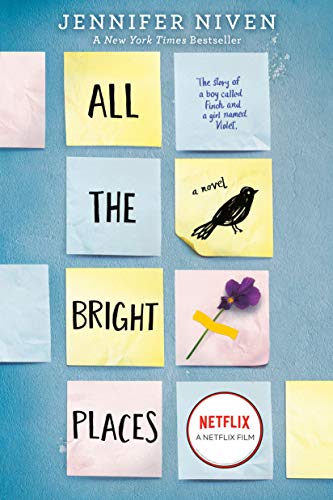
4
A girl who, troubled by her past, learns to live from a boy, troubled by his future. Finch wants to kill himself, but each time something small stops him. A trivial excuse from the definite end. Violet wants to grow old, counting the days until her graduation, until her future begins. One is looking forward, while the other has only ever looked back. They meet and have a handful of amazing days. They can be themselves with each other, only ever living in the moment, not the future or past. Finch stops obsessing with death. Violet stops counting forward. That is until something clicks. Violet's world grows, Finch's world shrinks. Then, something you never expect happens. In the search for his darkness, Finch accidentally points out all the bright places. Violet sees the bright places, and will forever treasure her time with Finch, all be it fleeting. This book ends with a bang and a stutter. It is not what is expected from a seemingly happy story.
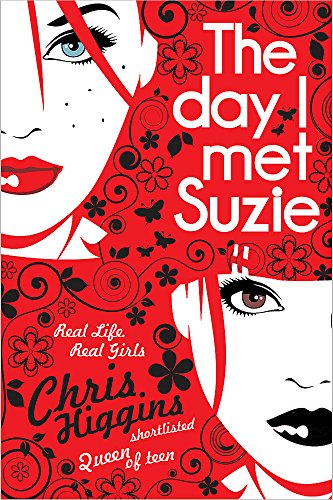
5
Indigo, a seemingly intelligent and kind girl, turns out to be more naive than you think. Rick, Suzie's boyfriend, is no better. His boyish, relaxed, kind charm wears off quickly. Suzie, a passive-aggressive victim, who never acts as she should. This book was full of wrong turns and bad decisions, but it ends in a way that is never expected. The subject matter was harsh, but the ending seems to forget about it. When it is over, it is not necessarily ending in a good way. It gives you a lot to ponder but not happily.
© Five Books 2026